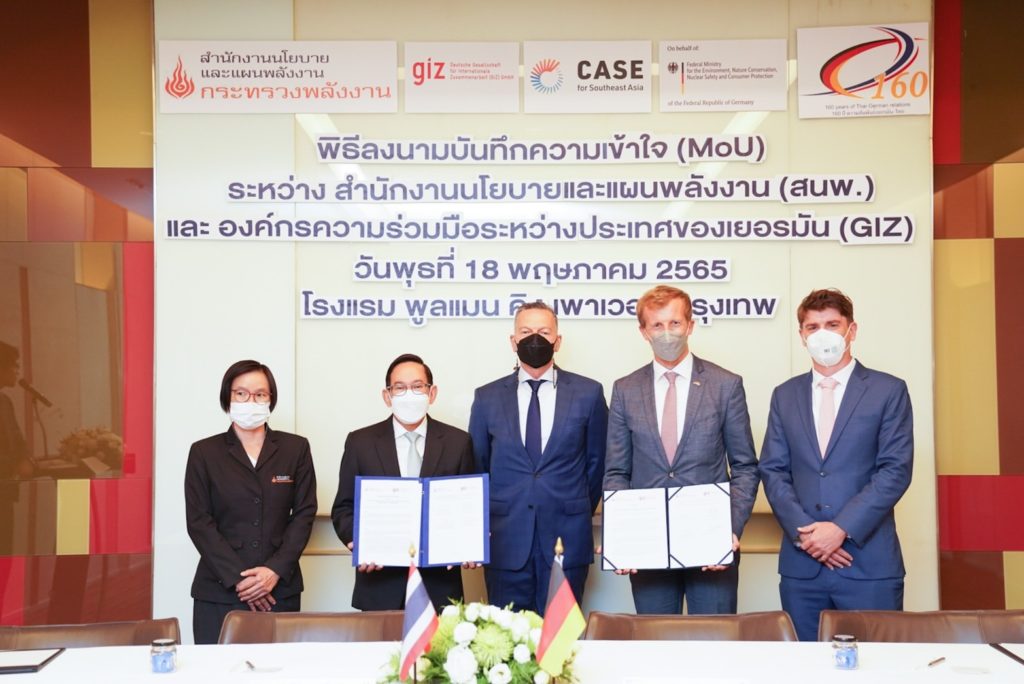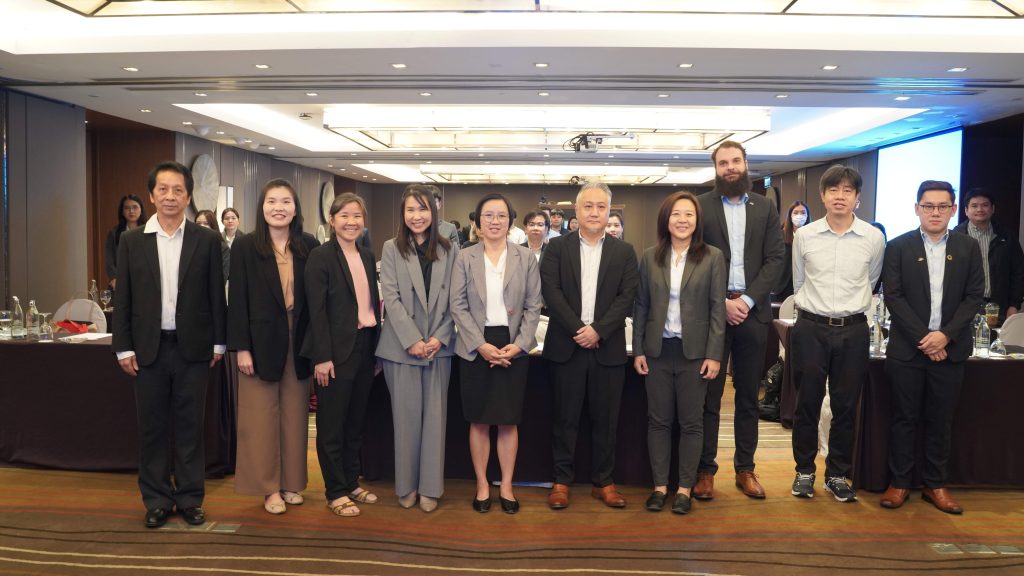Bangkok – 18th May 2022, EPPO and GIZ Thailand have signed a Memorandum of Understanding (MOU) under which both parties commit to cooperate in working on Thailand’s energy transition and support the country in moving towards sustainable action in protecting the planet from the impacts of climate change at Pullman Bangkok King Power Hotel.
Speaking at the MoU signing ceremony, Mr. Wattanapong Kurovat, Director General of The Energy Policy and Planning Office (EPPO), stated that Thailand is committed to achieving carbon neutrality within 2050, as outlined in the speech delivered by H.E. General Prayut Chan-o-cha, Prime Minister of Thailand at the recent COP26. The country’s energy projects are aligning their goals and moving forward to achieve the target.
“EPPO is responsible for developing and recommending national energy policies and plans, including energy-related measures and energy conservation to ensure a well-proportioned, adequate, and efficient supply of energy which corresponds to the situation of the country. Currently, EPPO is working on the implementation of the National Energy Plan which has been open for comments from the stakeholders since last year.”
The MoU signing ceremony marks another milestone of collaboration by committing CASE – Clean, Affordable, and Secure Energy for Southeast Asia programme under GIZ Thailand – to supporting EPPO in promoting and collaborating on Thailand’s energy transition to achieve the country’s carbon neutrality within 2050
Mr. Reinhold Elges, GIZ Country Director Thailand and Malaysia congratulated the two parties during the ceremony and noted that the collaboration and understanding will lead to the success of Thailand’s energy transition.
“GIZis responsible for the Programme’s overall delivery. It will also coordinate between the Energy Policy and Planning Office and other institutional beneficiaries. GIZ will also associate with the Thailand Development Research Institute (TDRI) in Thailand, the Energy Research Institute (ERI) which covers the country level, and will coordinate when needed with Agora and New Climate Institute (NCI) who are the International experts working on the energy transition for the studies and knowledge sharing.”
The CASE project aims to support EPPO in five broad types of intervention to promote and support the energy transition in Thailand:
- Develop joint research on technical, socio-economic and policy-related topics associated with the transformation of the energy sector.
- Support policy recommendations through a joint analysis of long-term challenges associated with the energy transition and inclusive of foreign experiences.
- Provide training and capacity development measures to EPPO and other key partners on energy transition-related topics.
- Facilitate dialogue and learning exchange at the regional and international levels on key energy transition matters.
- Support other research activities requested by EPPO that align with CASE’s objectives. These are to be agreed mutually agreed with GIZ on a case-by-case basis.
Mr. Simon Rolland, Energy Project Director CASE – GIZ, said the 2 partners, EPPO and GIZ will exchange and agree to share the data and information necessary for the Programme’s success. Confidentiality requirements shall be specified when needed to avoid undue diffusion of information and such requirements shall be respected by all parties. Nonetheless, all shared information must not affect the overall operations of both parties.
“Under this agreement, the collaboration will lead to the support of the planning process which will be aligned with Thailand’s energy transition context. The comments and knowledge from every party will be taken into consideration and applied to the proposal.”
Note for Editors
About EPPO: The Energy Policy and Planning Office
The Energy Policy and Planning Office (EPPO) is responsible for recommending national energy policies and plans, including energy-related measures and energy conservation to ensure a well-proportioned, adequate, and efficient supply of energy that corresponds with the situation of the country.




